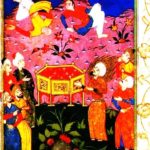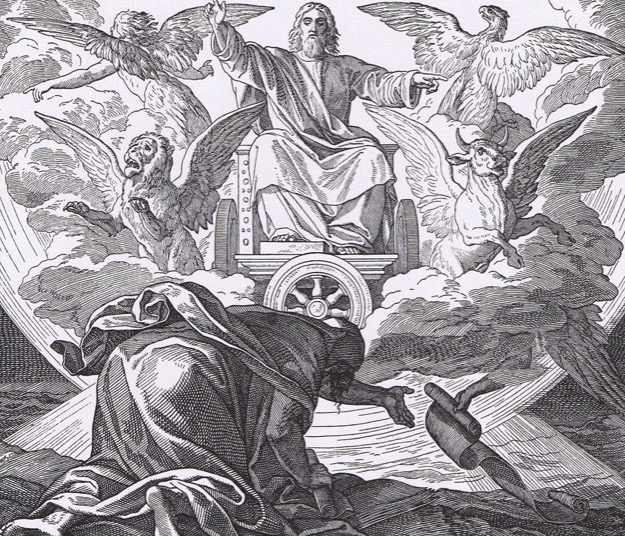Once we have Surah 81, we are able to reconstruct what it was the Muhammad actually taught early in his prophethood. He is warning of the Great Day, which is both the Day of Resurrection and the Day of Judgement. He believes that the apocalyptic words of Jesus are about to happen any moment.
So what’s left? What purpose does his prophethood serve?
Muhammad makes that very clear. All the people of the world have gotten a Book except the Arabs. They haven’t had a prophet to lead them to the Straight Path, as the others have. He has the idea that the only thing remaining for the Great Day is for the last of the people to be brought in–most especially, the last of the people from Abraham’s stock. Muhammad seemed aware of the ideas expressed in Romans 11:17-31, but he seems to be of the belief that the last branches to be grafted in are the Arabs, not the remnant of the Jews. This is part of the reason why Muhammad is so insistent that the Arabs–or at least his tribe, the Quraysh–comes from Ishmael. (The other is that all the prophets have been from Abraham’s line.) The Great Day has not come because some of Abraham’s seed has not returned to worshipping the One God. Ishmael, as the older son, should have been the proper heir all along, but, Muhammad believed, the Arabs strayed from their beliefs early on and turned to paganism.
Muhammad is the very last prophet to be recruited, and as such, he has a very special place. Not only will his people finally have a Book of their own and be brought into the fold of monotheism, triggering the Great Day, but he would unite the Christians and the Jews into proper monotheism at last, settling all the differences that have arisen between the “factions,” as he calls them, because he has a direct line to Allah and he also has unmatched wisdom and diplomatic skill at settling disputes. As the next prophet of Allah, Muhammad would, of course, still consider Jerusalem to be the Holy City, because that’s what all the People of the Book think. And the stone that had been attributed to the anonymous pagan “Allah” (meaning just “God”) must really be from the One True God, a sign of how important the Qurayshi are, after whom Muhammad’s own father was named.
Everyone, then, needs to hurry to get on the right side of Allah, because if they don’t, they’ll be caught out when the Great Day comes.
At first, the right path consists merely of embracing monotheism and praising Allah alone, especially through reciting the Book the Arabs were especially given. This is fleshed out to general topics of charity and justice. Muhammad’s earliest decrees are to end infanticide, for children to be dutiful to their mothers, to return or pay back anything that is owed, and to not be a grifter. He also instructed people to free believing slaves (unbelievers can rot), not to squander wealth through extravagant living, and to give charity to widows, orphans, and the disabled.
Muhammad, of course, could not have the Christian doctrines of justification or sanctification without the deity of Jesus Christ, so once someone turned to Allah, how could they make sure that they were considered acceptable before him? Muhammad’s answer was that people would not be held accountable for any sin that was paid in full on earth, through the mechanism of the law, but those who hid any sin would be damned to hell. Islamic scholars later came up with other various doctrines to replace this, many of which were quite conflicting, largely based on many murky ahadith, but this is the mechanism of justification in what was probably the first Islamic creed, which was still in effect until Muhammad’s first military victories.
So this was the start of Muhammad’s career. The influence of women in the earliest days of Islam are largely forgotten now except for as a memory that in early Islam, there were more women than men (this despite the fact that many more male names than female names are recorded in the sources!). However, the concern over mothers, female infants, and widows shows why women would have been initially so attracted to Islam. Muhammad’s overriding concern turns to making his warriors happy only after the military expansion of Islam began, which would drastically change the position of women forever.





